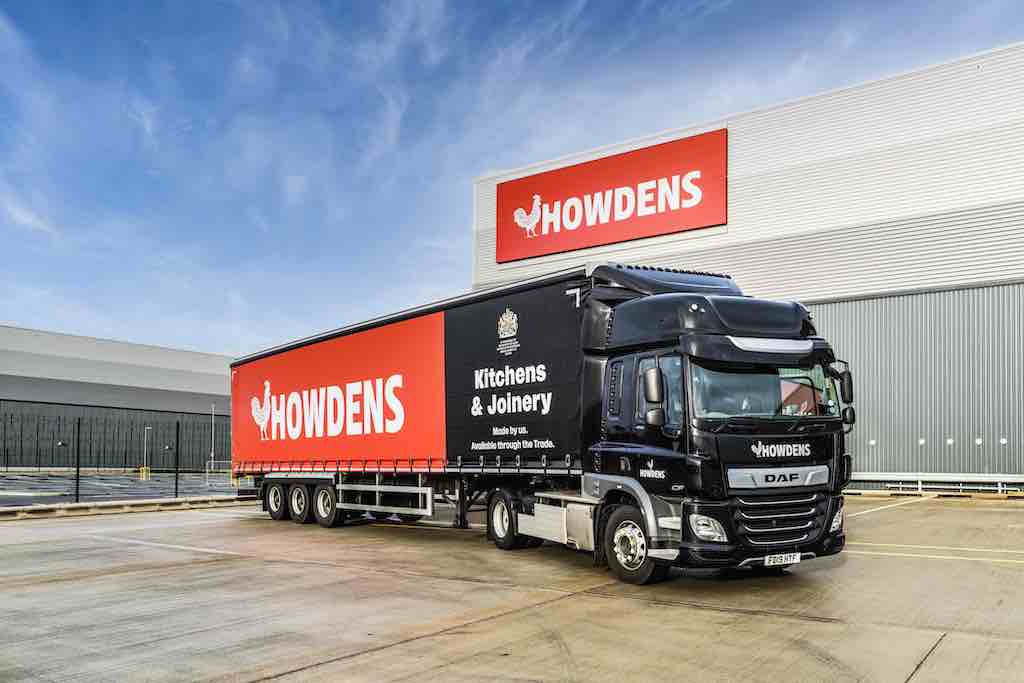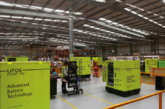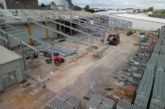Howdens has announced the introduction of Hydrotreated Vegetable Oil fuel (HVO fuel) and is piloting electric trucks into its logistics fleet, in a commitment to reduce CO2 as part of its sustainability strategy.
HVO fuel is now used extensively across the logistics fleet and the company has committed to buying 350,000 litres of HVO before the end of 2022, with plans to increase volumes in coming years as the business strives towards sustainability targets.
Produced using hydrogenation and hydrocracking of vegetable oils and animal fats, HVO fuel produces 90% less CO2 than diesel per litre.
HVO fuel is considered a ‘direct drop’ or ‘drop in’ solution, which can be used as a direct replacement, or in conjunction with, the fossil fuel diesel, without a requirement to adapt the truck’s engine.
The company has also been investigating zero-emission transport solutions and has begun a trial of electric trucks for part of its logistics operations. A DAF electric truck is being trialled, and Howdens aims to implement at least three electric vehicles across its sites by 2023.
Howdens is also introducing six bio-liquid natural gas vehicles at its Raunds and Portbury sites, which work similarly to diesel vehicles, but with an 80% reduction in CO2.
Gareth Sterland, Head of Transport at Howdens, said: “The move towards HVO, LNG and Electric vehicles demonstrates our commitment to CO2 reduction across our expanding fleet and network.
“At Howdens, we understand what we must do, and we will absolutely deliver on our carbon reduction promises. As the UK’s leading supplier of kitchens to the trade we travel millions of kilometres every year. Sustainable opportunities to improve and drive down our emissions are always being reviewed to find the best option for long term success and benefits to the local, national, and global environment. We are excited by the difference we will make.”










